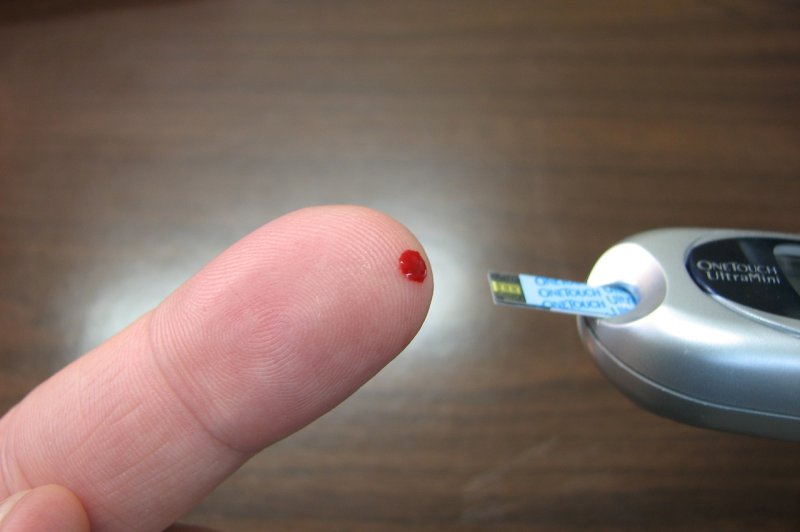Treatment for patients with type 1 diabetes is focused on monitoring blood sugar levels, but research suggests that specific types of stem cells could spur the pancreas to start producing insulin again. Photo by
peejhunt/Pixabay
Dec. 6 (UPI) -- Having type 1 diabetes can lead to crippling complications over time -- and a cure remains elusive.
However, researchers at the Medical University of South Carolina, or MUSC, are leading research efforts into the use of mesenchymal stem cells, or MSCs, to rein in or even reverse its debilitating effects, researchers announced this week.
They are currently enrolling people with type 1 diabetes in a clinical study to learn whether MSCs from umbilical cords transplanted into the pancreases of the disease can help their bodies produce insulin.
"MSCs derived from umbilical cords show greater cell yield, a less invasive harvesting procedure with associated reduced morbidity and stronger immunosuppressive and regenerative potential and are a popular source for cell therapy," Hongjun Wang, professor in the Department of Surgery at MUSC, said in a press release.
Type 1 diabetes is far less common than type 2. In fact, just 5 percent of those with diabetes have type 1.
Unlike type 2 diabetes, type 1 is primarily a genetic condition -- and was once commonly known as juvenile diabetes because it was most commonly diagnosed among children. In type 2 diabetes, the body produces insulin, but is unable to properly process or use it.
In type 1 diabetes, however, the body's own immune system attacks and destroys beta cells in the pancreas -- rendering it unable to produce insulin. Currently, there is no cure for type 1 diabetes, and treatment focuses on managing blood sugar levels through insulin therapy.
Injected insulin cannot fully replicate the natural regulation of blood glucose levels of insulin produced by the beta cells in the pancreas, leaving a gap in proper treatment of the condition.
Earlier research has suggested that MSCs, however, when administered to people with type 1 diabetes -- typically intravenously -- restore the normal function of the immune system, preserving the beta cells in the pancreas so that the organ can produce insulin.
Indeed, Wang and her colleagues hope to replicate a small study in Sweden, published in 2015 in the journal Diabetes, which administered MSC therapy to 20 adults with type 1 diabetes, using stem cells harvested from their own bone marrow. After tracking these patients for a year, the authors noted that the MSCs had indeed led to the creation of beta cells and spurred insulin production.
According to Wang, she and her colleagues are using MSCs from umbilical cords -- rather than bone marrow -- because harvesting procedures are less invasive and often yield more usable cells.
The MSC study is one of four in Wang's lab at MUSC that received funding from the National Institutes of Health. She said it will be a randomized, double blind, placebo-controlled clinical trial in six adults newly diagnosed with type 1 diabetes, and will take at least five years to complete.
"The beauty of our lab at MUSC is the ability to do translational research," said Wang. "We can study the mechanisms of the disease on the bench and then have the ability to move to the bedside in a clinical trial."















